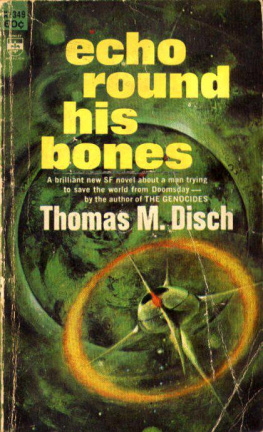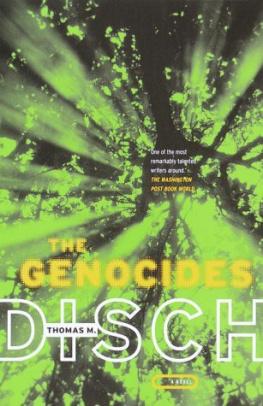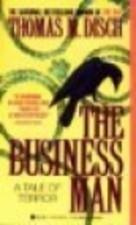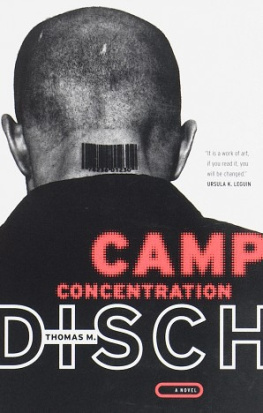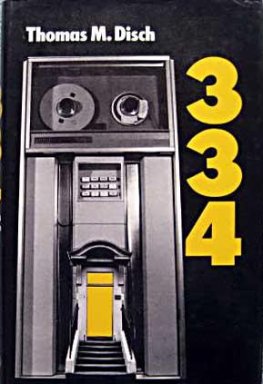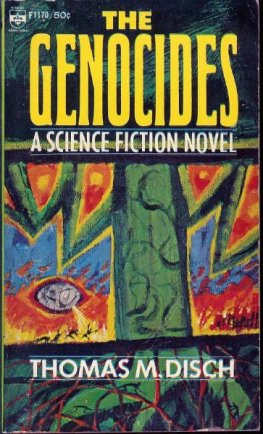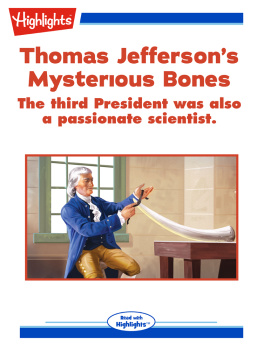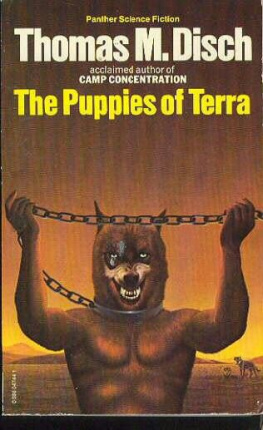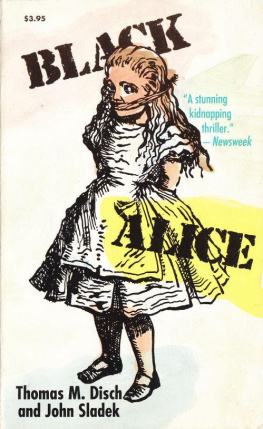Thomas M. Disch - Echo Round His Bones
Here you can read online Thomas M. Disch - Echo Round His Bones full text of the book (entire story) in english for free. Download pdf and epub, get meaning, cover and reviews about this ebook. year: 1979, publisher: Pocket, genre: Detective and thriller. Description of the work, (preface) as well as reviews are available. Best literature library LitArk.com created for fans of good reading and offers a wide selection of genres:
Romance novel
Science fiction
Adventure
Detective
Science
History
Home and family
Prose
Art
Politics
Computer
Non-fiction
Religion
Business
Children
Humor
Choose a favorite category and find really read worthwhile books. Enjoy immersion in the world of imagination, feel the emotions of the characters or learn something new for yourself, make an fascinating discovery.
- Book:Echo Round His Bones
- Author:
- Publisher:Pocket
- Genre:
- Year:1979
- Rating:4 / 5
- Favourites:Add to favourites
- Your mark:
- 80
- 1
- 2
- 3
- 4
- 5
Echo Round His Bones: summary, description and annotation
We offer to read an annotation, description, summary or preface (depends on what the author of the book "Echo Round His Bones" wrote himself). If you haven't found the necessary information about the book — write in the comments, we will try to find it.
Echo Round His Bones — read online for free the complete book (whole text) full work
Below is the text of the book, divided by pages. System saving the place of the last page read, allows you to conveniently read the book "Echo Round His Bones" online for free, without having to search again every time where you left off. Put a bookmark, and you can go to the page where you finished reading at any time.
Font size:
Interval:
Bookmark:
60
Medallion
echo
round
his
bones
The brilliant new SF novel about a man trying
to save the world from Doomsday -
by the author of THE GENOCIDES
Thomas M. Disch
SINKING INTO TROUBLE
Worsaw shot the private three times in the face. The body
crumpled backward against -- and partly through -- the
wall.
"That takes care of one son-of-a-bitch," said the spectral
Worsaw.
Before the man's murderous inference could be realized,
Hansard acted. In a single motion he threw himself from
the bench and the attach case that he had been holding at
Worsaw's gun hand. The gun went off, doing harm only to
the case.
In leaping from the bench Hansard had landed on the floor
of the steel vault -- or more precisely, in it, for his hands had
sunk several inches into the steel, which felt like chilled
turpentine against his skin. This was strange, really very
strange... But not to be distracted from his immediate
purpose -- which was to disarm Worsaw -- he sprang up to
catch hold of Worsaw's hand, but found that with the same
movement his legs sank knee-deep into the insubstantial
floor.
round
his
bones
Thomas M. Disch
NATHAN HANSARD
The finger on the trigger grew tense. The safety was released, andin almost the same moment the gray morning stillness was shattered bythe report of the rifle. Then, just as a mirror slivers and the imagesmultiply, a myriad echoes returned from the ripening April hillsides --a mirthful, mocking sound. The echoes re-echoed, faded, and died. Butthe stillness did not settle back on the land; the stillness was broken.
The officer who had been marching at the head of the brief column of men-- a captain, no more -- came striding back along the dirt track. He wasa man of thirty-five or perhaps forty years, with fair, regular featuresnow set in an expression of anger -- or, if not quite anger, irritation.Some would have judged him a handsome man; others might have objectedthat his manner was rather too neutral -- a neutrality expressive notso much of tranquility as of truce. His jaw was set and his lips moldedin the military cast. His blue eyes were glazed by that years-longunrelenting discipline. They might not, it could be argued, have beenby nature such severe features: without that discipline the jaw mighthave been more relaxed, the lips fuller, the eyes brighter -- yes,and the captain might have been another man.
He stopped at the end of the column and addressed himself to thered-haired soldier standing on the outside of the last file -- amaster-sergeant, as might be ascertained from the chevron sewn to thesleeve of his fatigue jacket.
"Worsaw?"
"Sir." The sergeant came, approximately, to attention.
"You were instructed to collect all ammunition after rifle practice."
"Yes, sir."
"All cartridges were to be given back to you, therefore no one shouldhave any ammunition now."
"No, sir."
"And this was done?"
"Yes, sir. So far as I know."
"And yet the shot we just heard was certainly fired by one of us.Give me your rifle, Worsaw."
With visible reluctance the sergeant handed his rifle to the captain."The barrel is warm," the captain observed. Worsaw made no reply.
"May I take your word, Worsaw, that this rifle is unloaded?"
"Yes, sir."
The captain put the butt of the rifle against his shoulder and laid hisfinger over the trigger. He remarked that the safety was off. Worsawsaid nothing.
May I pull the tngger, Worsaw?" The rifle was pointed at the sergeant'sright shin. Worsaw still said nothing, but beads of sweat had broken outon his freckled face.
"Do I have your permission? Answer me."
Worsaw broke down. "No, sir," he said.
The captain broke open the magazine and removed the cartridge clip.He handed the rifle back to the sergeant. "Is it possible, Worsaw,that the shot that brought us to a halt a moment ago was fired from thisrifle?" There was, even now, no trace of sarcasm in the captain's voice.
"I saw a rabbit, sir -- "
The captain's brow furrowed. "Did you hit it, Worsaw?"
"No, sir."
"Fortunately for you. Do you realize that it is a federal offense to killwildlife on this land?"
"It was just a rabbit, sir. We shoot them around here all the time.Usually when we come out for rifle practice, or that sort of stuff -- "
"Do you mean to say that it is not against the law?"
"No, sir, I wouldn't know about that. I just know that usually -- "
"Shut up, Worsaw!"
Worsaw's face had become so red that his reddish-blond eyebrows and lashesseemed pale in comparison. In his bafflement his lower lip had begun totic back and forth, as though some buried fragment of his character weretrying to pout.
"I despise a liar," the captain said blandly. He inserted his thumbnailunder the tip of the chevron sewn on Worsaw's right sleeve and rippedit off with one quick motion. Then the other chevron.
The captain returned to the front of the column, and the march back tothe trucks that would return them to Camp Jackson was resumed.
This captain, who will be the hero of our history, was a man of thefuture -- that is to say, of what would seem futurity to us; for to thecaptain it seemed the most commonplace present. Yet there are degreesof living in the future, of being contemporary there, and it must beadmitted that in many ways the captain was more a man of the past (ofhis past, and even perhaps of ours) than of the future.
Consider only his occupation: A career officer in the Regular Army --surely a most uncharacteristic employment in the year 1990. By thattime everyone knew that the army, the Regular Army (for though thedraft was still in operation and young men were compelled to surrendertheir three years to the Reserve Army, they all knew that this was ajoke; that the Reserves were useless; that they were maintained onlyas a device for keeping themselves out of the labor force, or off theunemployment rolls that much longer after college), was a career forlouts and nincompoops. But if everyone knew this...? Everyone whowas "with it"; everyone who was truly comfortable living in the future.
These contemporaries of the captain (many of whom -- some 29 per cent --were so much unlike him as to prefer three years of postgraduate study inthe comfortable and permissive prisons that had been built for C.O.'s --the conchies, as they were called -- rather than submit to the ritualnonactivities of the Reserves) regarded the captain and his like as --and this is their most charitable judgment -- fossils.
It is true that military service traditionally requires qualities moreof character than of intelligence. Does this mean, then, that our herois on the stupid side? By no means! And to dispel any lingering doubtsof this, let us hasten to note that in third grade the captain's I.Q.,as measured by the Stanford-Binet Short Form, was a respectable 128 --certainly as much or more than we can fairly demand of a hero in thisline of work.
In fact it had been the captain's experience that he possessed intelligencein excess of his needs; he would often have been happier in his callingif he had been as blind to certain distinctions -- often of a moralcharacter -- as most of his fellow officers seemed to be. Once, indeed,this over-acuteness had directly injured the captain's prospects. And itmight be that that long-ago event was the cause, even this much later,of the captain's relatively low position (considering his age) in themilitary hierarchy. We shall have opportunity to hear more of thisunpleasant moment -- but in its proper place.
Next page
Font size:
Interval:
Bookmark:
Similar books «Echo Round His Bones»
Look at similar books to Echo Round His Bones. We have selected literature similar in name and meaning in the hope of providing readers with more options to find new, interesting, not yet read works.
Discussion, reviews of the book Echo Round His Bones and just readers' own opinions. Leave your comments, write what you think about the work, its meaning or the main characters. Specify what exactly you liked and what you didn't like, and why you think so.

